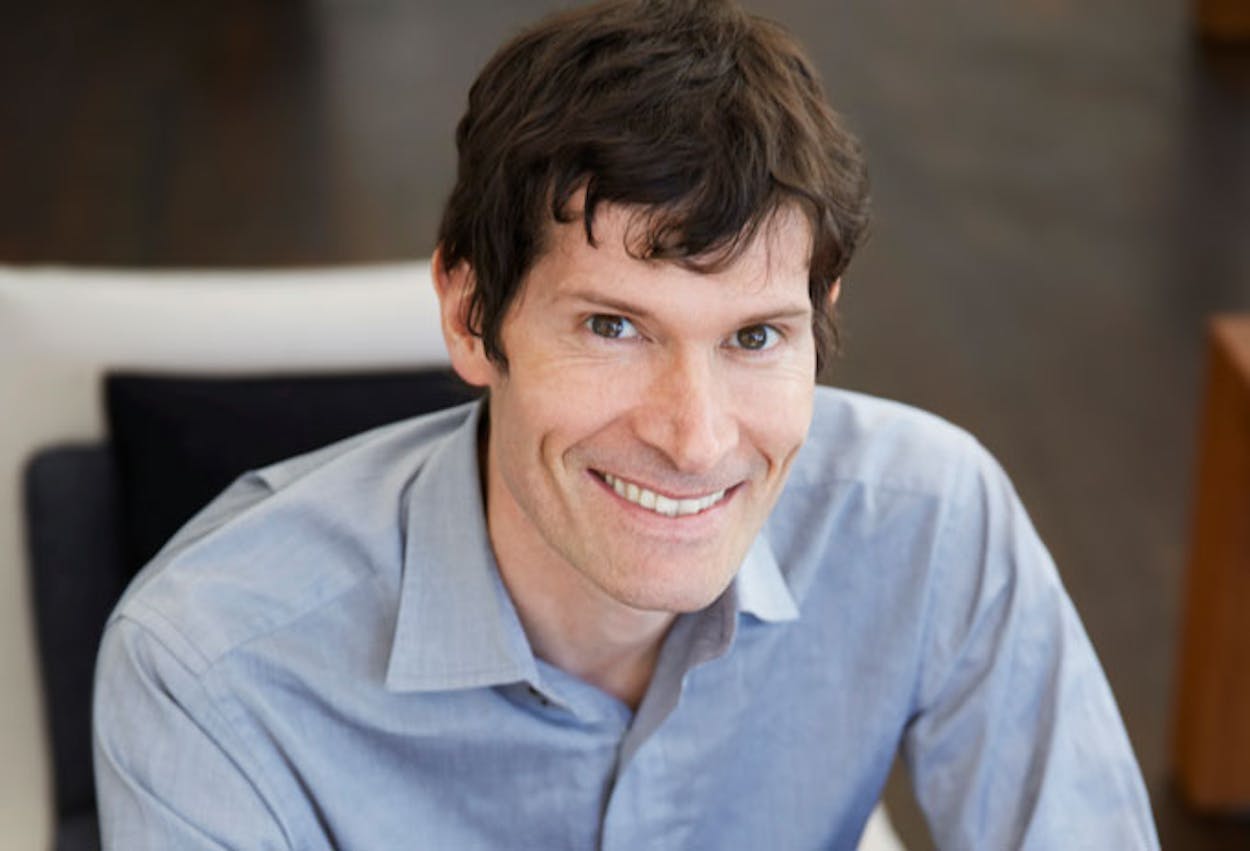This December, nationally acclaimed chef Daniel Patterson, owner of Coi in the North Beach area of San Francisco, will be stopping at Underbelly to host a reception and engaging discussion with that Houston restaurant’s equally renowned owner, chef Chris Shepherd. The occasion is a promotional tour for Patterson’s first cookbook, Coi: Stories and Recipes. During his career, Patterson has garnered such honors as five James Beard Award nominations, a two-star Michelin review, and a Best New Chef award from Food & Wine magazine.
Perhaps America’s best-known proponent of foraging and modernist cuisine with a strong seasonal element, Patterson creates imaginative, unexpected dishes. Much like Shepherd, he draws inspiration from its local culinary communities, cultural identities, and culinary history. He has said, “Cooking is the most primal way that human beings interact with each other.” Recently he talked with Texas Monthly about his newfound fascination with Houston, his collaboration with Shepherd, and what makes a great culinary city.
Texas Monthly: What inspired you to stop in Houston on your book tour?
Daniel Patterson: When we started looking at potential cities to visit, I knew I had to do a book event in Texas, specifically in Houston. Five years ago, Houston would have been considered a secondary market, but there is a lot of excitement and attention being driven to the city now. I knew Chris Shepherd by reputation and met him awhile back, and we had talked about doing an event that centered on a thought-provoking discussion about food. Chris views food as a connecting force to the community, which is very similar to how I think. He and I come from very different cultures, but we both share this amazing passion and respect for food.
TM: Are you going to check out any specific places while you’re in Houston?
DP: I want to visit so many of them but I’m going to let Chris show me around.
TM: What can people expect at the Underbelly event? Are you going to be cooking?
DP: No, Underbelly is going to be doing some cooking that’s inspired by certain ideas in my new book. For me to cook in another city for that many people—it’s beyond my capacity! We’re essentially creating a conversation around food and its connection to the way we see the world around us and the way we connect to our family, friends, and communities. Most chefs are very passionate and emotional about what they do, and people can take away a lot of emotion from places like Underbelly and Coi. We’ll be there to facilitate those exciting conversations.
TM: Let’s talk about your new book, Coi. The publisher Phaidon is really well known and respected for their cookbooks. Tell me what made you want to work with Phaidon specifically.
DP: In all honesty, I didn’t want to do a cookbook for years. So when Phaidon asked if I’d want to do a cookbook a while back, I said no. I wasn’t ready yet. Chefs have their own language and it’s hard to translate that into writing. But we kept talking about ideas over time. I love their perspective and passion for books, especially when they pertain to food. And when I finally did come up with an idea I based it around two things: the images had to be simple and fun and I wanted to write my recipes very conversationally, almost like I was talking to a cook in my kitchen.
TM: Do you have an eye for photography?
DP: Yes, and I give the photographer, Maren Caruso, a lot of credit in that regard. We worked together very closely in creating this book. We had a lot of discussion on how to present something like a soup or a flat piece of meat. Putting food on a plate causes you to look at things in a different perspective. You start experimenting with things that look off balance and test the space between different things. Doing that over many years lends itself that can change your perspective in photography.
TM: You alluded to Houston having a moment right now. As someone who works in San Francisco, what do you feel makes for a great restaurant culture?
DP: The first and most important thing is a respect for food in your life. The second thing is access to great products. Rather than things that are shipped in from all over the place, the food needs to be attached to people and communities—farmers, fisherman, ranchers, and the like. The third thing is a culture of cooks who can open our minds to how our identity can be formed through cuisine. If a region has an identity, the food must be allowed to participate. In doing that, we see whole cultures transforming their views and beliefs about food.
Daniel Patterson will be at Underbelly during his book tour on December 8. The event costs $70 and includes wine, light bites, and a signed copy of Coi: Stories and Recipes. To purchase a ticket to the reception, contact Underbelly at 713-528-9800.
- More About:
- Chris Shepherd






